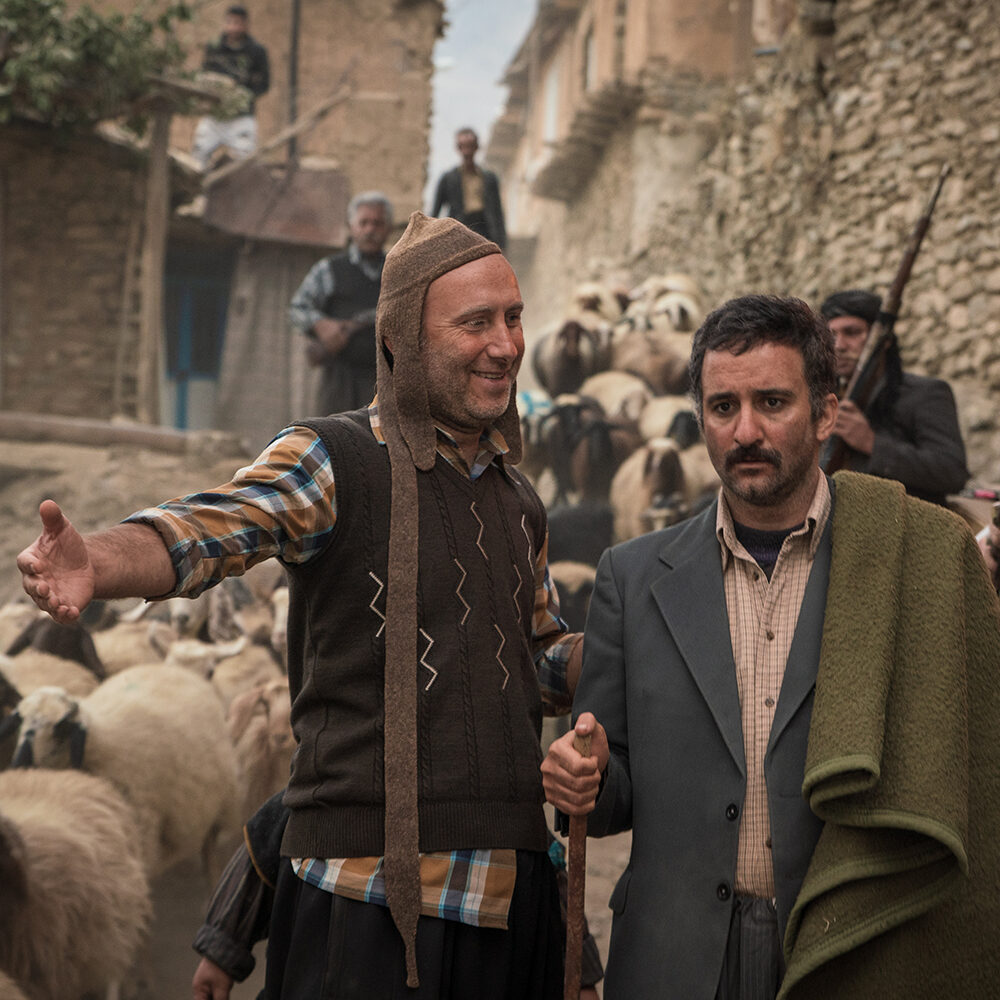NEWS

FESTIVAL COVERAGE, REVIEWS ZALAVA
Written By SIMON BOWIE
In Arsalan Amiri’s ZALAVA (زالاوا), demons are loose in a small village in pre-revolution Iran and mob mentality grips the village’s people. ZALAVA is a confident, creepy, and at times hilarious Middle Eastern horror film with an impressive cast, striking camera work, and gestures towards wider political discussions.
Set before the Iranian Revolution, Zalava is a village in Kurdistan settled by Roma people and beset by demons possessing children and haunting homes. Sergeant Masoud (Navid Pourfaraj) is a no-nonsense warden of the region with little patience for the villagers’ superstitions: he wants nothing more than to calm the tensions caused by these so-called demons and restore order to his territory. With the help of local doctor Malihe (Hoda Zeinolabedin), he’s getting a handle on things until an exorcist, Amardan (Pouria Rahimi Sam), arrives in Zalava and, allegedly, captures a demon in a pickle jar.
ZALAVA is a film about mob mentality and group superstition and so it lives on the ensemble performance of its cast of villagers reacting collectively to the demonic threat hanging over the village. There’s a MONTY PYTHON’S LIFE OF BRIAN quality to their overreactions and group panic but the diverse cast is careful to imbue each character with some unique personality no matter how small their screen time. It creates a real impression of a whole village driven mad by group hysteria.
The real stand-out is Pourfaraj as Sergeant Masoud who plays the straight man to the villagers, the exorcist, and his troops. He manages a firm stoicism but with a warmth and vulnerability behind the eyes. Masoud is a relentlessly sensible man standing up against the irrational fears of the people around him and the ridiculousness of being afraid of a pickle jar. As he reveals more about himself and we understand the character’s struggle against superstition, the depths that Pourfaraj is bringing to the character become ever clearer.
ZALAVA is strikingly well shot throughout with some dynamic camera work that captures the energy of the village and its people. There’s a confident to the deliberate and well-defined shots and camera movements that suggests a real maturity to Arsalan Amiri as a director.
Though ZALAVA’s pace drags a little after a strong opening, it’s a confident Middle Eastern horror comedy that says something interesting about superstition and group hysteria. Being very specifically set in a pre-revolution Kurdistan, there’s also interesting subtext about faith overriding reason among a collective of people. As Sergeant Masoud says to Doctor Malihe: “Superstitious people don’t just hurt themselves. They are a danger to everyone.”
